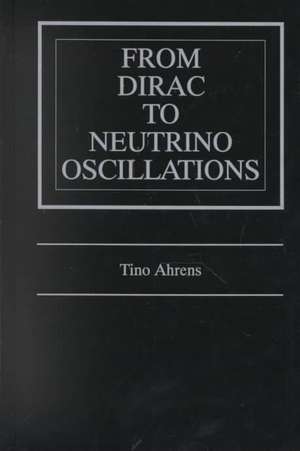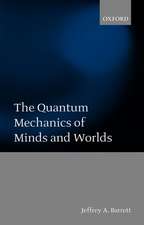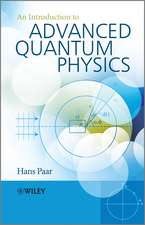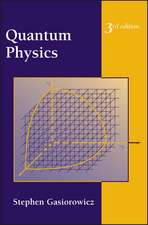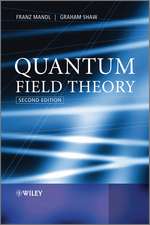From Dirac to Neutrino Oscillations
Autor Tino Ahrensen Limba Engleză Hardback – 30 iul 2000
| Toate formatele și edițiile | Preț | Express |
|---|---|---|
| Paperback (1) | 939.77 lei 43-57 zile | |
| Springer Us – 22 feb 2014 | 939.77 lei 43-57 zile | |
| Hardback (1) | 945.92 lei 43-57 zile | |
| Springer Us – 30 iul 2000 | 945.92 lei 43-57 zile |
Preț: 945.92 lei
Preț vechi: 1153.57 lei
-18% Nou
Puncte Express: 1419
Preț estimativ în valută:
181.00€ • 189.46$ • 150.65£
181.00€ • 189.46$ • 150.65£
Carte tipărită la comandă
Livrare economică 31 martie-14 aprilie
Preluare comenzi: 021 569.72.76
Specificații
ISBN-13: 9780792378860
ISBN-10: 0792378865
Pagini: 175
Ilustrații: XV, 175 p.
Dimensiuni: 155 x 235 x 13 mm
Greutate: 0.46 kg
Ediția:2000
Editura: Springer Us
Colecția Springer
Locul publicării:New York, NY, United States
ISBN-10: 0792378865
Pagini: 175
Ilustrații: XV, 175 p.
Dimensiuni: 155 x 235 x 13 mm
Greutate: 0.46 kg
Ediția:2000
Editura: Springer Us
Colecția Springer
Locul publicării:New York, NY, United States
Public țintă
ResearchDescriere
1bis text is meant to be a view of the quantum mechanical fonnalism as it develops with the successive introduction of different types oftransfonnations. In particular, it is meant to help the readers with three tasks: acquainting themselves with a general and direct approach to the quantum mechanics of spin one-half and spin-one particles, primarily leptons, photons and massive vector bosons, and to some extent quarks; finding out what some of the related areas of current research interest are; and, last and foremost, trying to understand the subject, beginning with and stressing the principles involved. The exposition is based on finite-dimensional representations of the homogeneous Lorentz group, and the subsequent introduction of gauge transformations, of the Abelian and non Abelian varieties. Reference to classical mechanics is avoided. Acting on the simple basis spinors and vectors, Lorentz transfonnations generate wave and field functions. Equations are obtained by the relativistic generalization of the addition of angular momenta, the wave or field functions being the solutions. For zero mass the equations may be obtained as the limits of the equations for the massive cases or by the application of the Euclidian group in two dimensions. The latter approach is illuminating in that it uncovers a loss in generality resulting from the former. Identifying momenta as eigenvalues of translations demonstrates covariance under the inhomogeneous Lorentz or Poincare group. Various representations of wave and field functions are given.
Cuprins
Preface. Acknowledgements. Part One Introduction. 1. Coordinate and Point Transformations. 2. Rotations and Lorentz Transformations. 3. Spinors. 4. Vectors. Part Two Introduction. 5. Gauge Transformations. 6. Electroweak Theory. 7. Massive Neutrinos. Appendix. References. Index.
